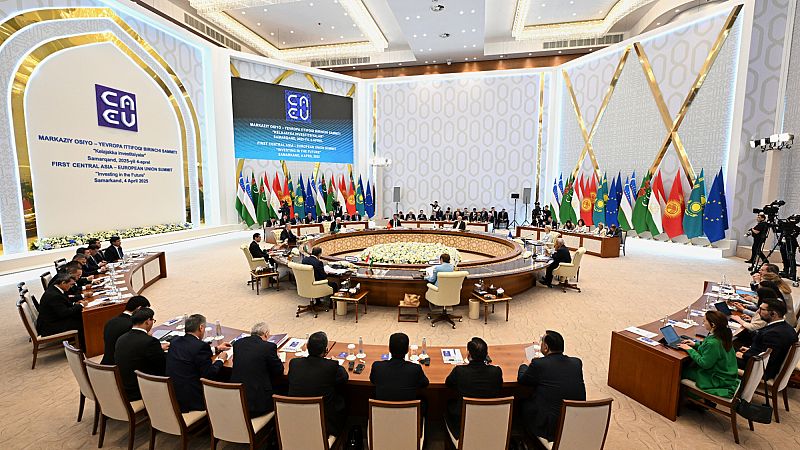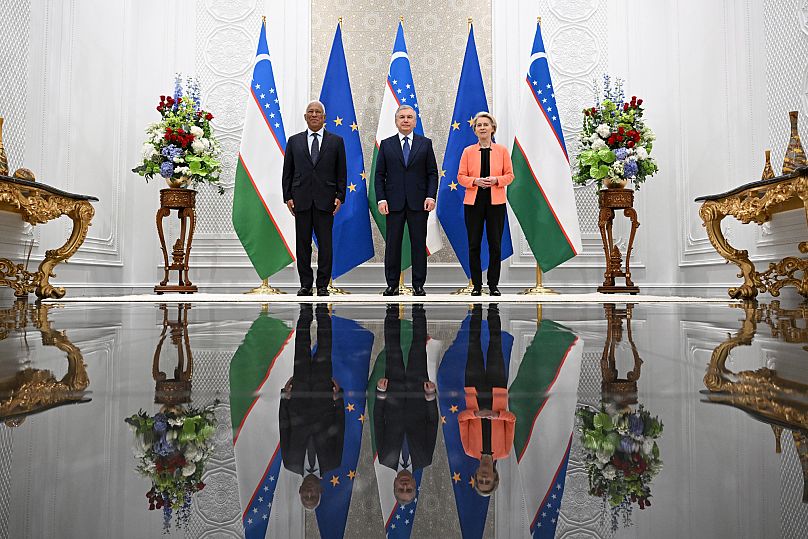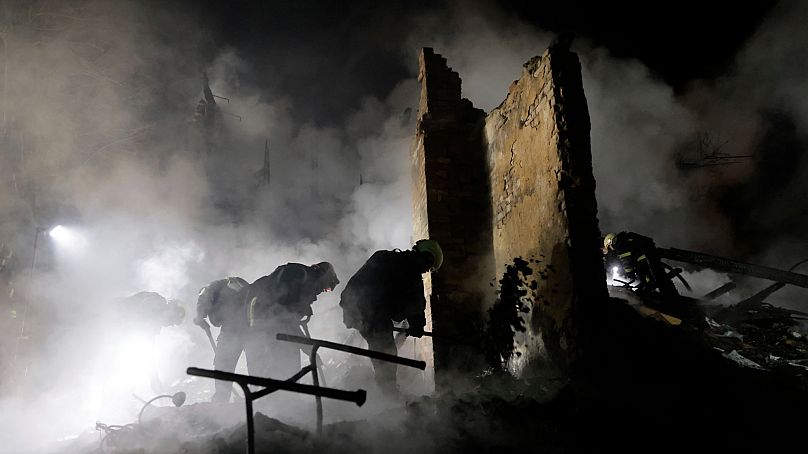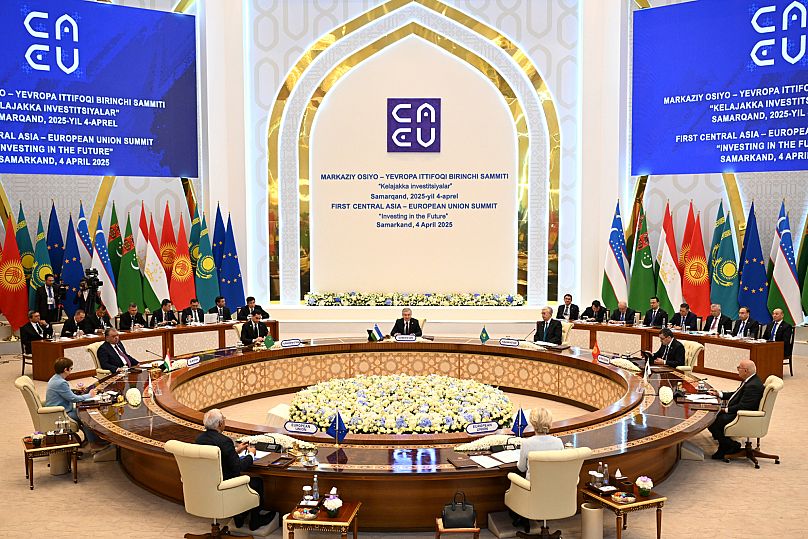EU seals new Central Asia partnership deal as debut Samarkand summit ends

The EU has announced a new strategic partnership with countries in Central Asia at the conclusion of a debut summit in the Uzbek city of Samarkand.
The first EU-Central Asia summit saw European Council president António Costa EU Commission chief Ursula von der Leyen hold two days of talks with the leaders of Kazakhstan, Kyrgyzstan, Tajikistan, Turkmenistan and Uzbekistan.
The summit took place amid a turbulent geopolitical and economic climate, a day after US President Donald Trump announced a raft of global trade tariffs on several countries, including allies like the EU and the UK, rattling markets and drawing criticism from world leaders.
Marking 30 years since diplomatic relations were established, António Costa emphasized the importance of multilateral cooperation.
"In today's international context, the importance of a functioning, rules-based multilateral order cannot be overstated. Our meeting today encourages even more European Union Central Asia cooperation in multilateral fora, reinforcing our shared commitment to a peaceful world and prosperous global order," he said.
Costa also addressed common security challenges, pointing out multiple threats, notably terrorism, violent extremism and drug trafficking which risks spilling over into both Central Asia and Europe.
Ursula von der Leyen outlined the potential benefits of stronger ties.
"Your strategic location can open global trade routes and investment flows. And these new investments will enhance sovereignty. They will strengthen your economies. And most importantly, they will make new friendships," she said.
Von der Leyen said that she believes the partnership will lead to new opportunities in sectors such as energy, tourism, trade and transport as she announced a €12 billion investment package for the region.
"This will bring together investments from our European Union and Member States. We call it a Team Europe approach. And it will launch a new pipeline of projects to Central Asia. This is truly the start of a new era in our ancient friendship,” she said.
What is the EU's investment package for?
The new package will finance projects in transport (€3 billion), critical raw materials (€2.5 billion), water, energy and climate (€6.4 billion), as well as digital connectivity - some of which have already been greenlit and allocated by the European Bank for Reconstruction and Development (EBRD).
Access to clean energy and rare earths is critical for the EU as it seeks to achieve climate neutrality by 2050 and boost its autonomy in strategic sectors.
But sizeable shares of the global mining, processing and recycling of some of the critical raw materials, like lithium, that are indispensable to the development of renewable energy, everyday items as well as defence systems, are controlled by China, from which the EU wants to 'decouple' due to its aggressive and protectionist trade and foreign policy practices.
Central Asia holds large deposits, including 38.6% of the world's manganese ore, 30.07% of chromium, 20% of lead, 12.6% of zinc, and 8.7% of titanium.
"These raw materials are the lifeblood of the future global economy. Yet they are also a honeypot for global players. Some are only interested in exploiting and extracting," von der Leyen told Central Asian leaders.
"Europe's offer is different. We also want to be your partners in developing your local industries. The added value has to be local. Our track record speaks for itself," she added.
Multilateralism and Ukraine
The protection of the "rules-based multilateral order" was meanwhile the focus of António Costa's address.
"We must work together not only to defend multilateralism but to reform it so that it is more effective, inclusive, and better suited to today’s realities," he said.
The president of the European Council emphasised that "security threats are now of a transnational nature" and called for greater cooperation at bilateral, regional, and multilateral levels, including on Russia, which he said has been violating the UN Charter and international law with its full-scale invasion of Ukraine.
The five Central Asian countries have abstained from votes in the UN relating to Russia's aggression against its neighbour, choosing to stay neutral, but they have benefited to some extent by re-exporting sanctioned Western goods to Russia.
The EU, which has imposed 16 packages of sanctions against Russia for its unprovoked belligerence, has appointed a Special Envoy for sanctions circumvention who has travelled to the region on numerous occasions over the last three years.
EU officials speaking on condition of anonymity said ahead of the summit that Central Asian countries had displayed a "willingness to cooperate" but that the bloc would like "to see more", especially given the ongoing talks between US and Russia from which Europe has been largely sidelined, sparking fears its interests won't be protected.
However, the same source also said that further efforts on the topic are "an important element in order to advance our relations" but not a precondition.
Costa made a thinly-veiled reference to sanctions circumvention, telling the plenary that Europe will "continue to increase pressure where necessary" on Russia and that Central Asia's "cooperation is invaluable".
"We count on your continued efforts in this regard," he said.
President Shavkat Mirziyoyev said his country, Uzbekistan, "shares the commitment of the European side to the principles and norms of international law" and "welcomes and fully supports the negotiation process on the peaceful settlement of the situation in Ukraine."
The summit also saw leaders agree to hold an Investors Forum later this year to secure more investments, notably for the Trans-Caspian Transport Corridor that will drastically reduce the time needed to export goods between the two regions while bypassing Russia, and establish a local EBRD office in Uzbekistan.
They also supported the idea of holding similar summits every two years.
Today




